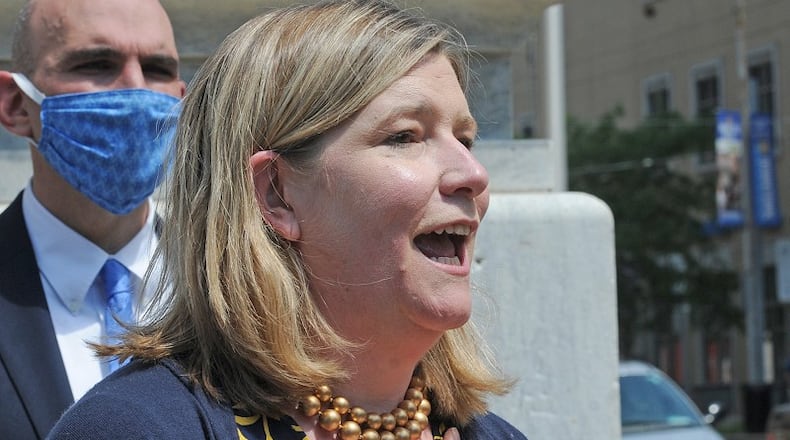The resolution says racism also is responsible for minorities having higher rates of incarceration, homelessness and poor education and health outcomes.
The city says it must reshape the conversation and its policy agenda and actively engage in racial justice work and fix racial disparities.
The city wants a “collective impact model” focused on racism similar to successful community efforts to tackle the opioid epidemic and improve educational and learning opportunities, said Dayton Mayor Nan Whaley.
“It’s a way that our community is used to dealing the top issues of our community,” she said. “I am excited about that work and getting everybody to the table.”
MORE: Montgomery County declares racism public health crisis
On Wednesday night, city commissioners approved a two-page resolution that highlights some of the economic, social and health challenges facing black people.
The commission’s vote came one day after the Montgomery County Board of Commissioners also officially declared racism a public health crisis. Many other U.S. communities have done the same thing.
The resolution says black people have much higher child mortality rates, child poverty rates, unemployment rates, home-loan denial rates, school drop-out rates and death rates due to chronic disease.
Because of black Americans’ experiences with slavery, Jim Crow segregation laws and other discriminatory laws and policies that favored white people, people of color face racism on systemic, institutional and interpersonal levels, the city’s resolution says.
MORE: Montgomery County jail sees more coronavirus cases
The city of Dayton has a responsibility to address racism and must try to change persistent disparities in measures of health, social, economic, educational and environmental well-being, the resolutions say.
The city says it will use an “anti-racist lens” to create new city policies.
The city says it will work with community stakeholders to create action plans to address racism that negatively impacts people of color when it comes to law enforcement, the courts and criminal justice system, education, food insecurity and access, economic opportunities, health care and other areas.
The wounds and injustice of racism span many generations, but this is an incredible opportunity to interrupt and eradicate this evil and better realize the ideals of America, said Dayton City Commissioner Darryl Fairchild.
“I appreciate the courage of my fellow commissioners and you, mayor, for forthrightly taking this on in this moment,” Fairchild said. “We know it won’t be an easy task, and it’s not our task alone, so I hope other people hear us inviting them to this work.”
Other local groups say they are committed to these goals, including the Dayton Area Chamber of Commerce, which officially endorsed the city’s and county’s resolutions declaring racism an emergency.
“The Dayton Area Chamber commits to increased dialogue and awareness of racial injustices, further education for employers and employees to improve diverse and inclusive workplace practices, continued advocacy and leadership in the growth of minority-owned businesses and enhanced engagement with minority business leaders and strengthened partnerships with the African American community to work against racism,” the chamber said in a statement.
About the Author

